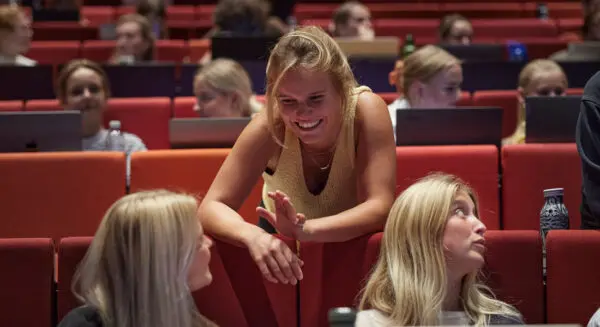
Florence, Italy
Design Made in Italy
When:
30 June - 18 July 2026
Credits:
10 EC
Read more
Architecture
When:
04 September - 10 September 2019
School:
ETH Zürich, Swiss Federal Institute of Technology
Institution:
ETH Zürich, Swiss Federal Institute of Technology
City:
Country:
Language:
English
Credits:
2 EC
Fee:
100 EUR

This international summer school investigates the 'contact zone' as a new methodological tool to better understand the global-ness of architecture production. Appropriating the term from literature scholar Mary Louise Pratt who, in the context of colonial studies, defined contact zones as ‘social spaces where cultures meet, clash and grapple with each other, often in highly asymmetrical ways,’ students will analyze how intense cross-cultural encounters with architecture culture produced friction as much as ‘exhilarating moments of wonder, revelation, mutual understanding and new wisdom,’ in Pratt’s words.
We will start by examining the different meanings that has been attributed to the concept of the ‘contact zone’ through an analysis of those disciplines within which the term was first used. Next, we will explore the potential of this concept for the field of architecture. Particular emphasis will be placed on understanding the different mechanisms that are at play within a particular contact zone, by posing questions such as: What makes an architectural contact zone possible? How does it come into being? Who has access to it, and doesn’t? What power relations are at stake within a contact zone? In what way are common interests communicated and negotiated and, in that way, produced new architectural knowledge?
To offer students hands-on experience, this theoretical model will be tested through the contact zone of the architecture competition. Our case study is the Shinkenchiku Residential Design Competition, an international housing ideas competition that originated in Japan in 1965 and has since been running on a yearly basis. What sets this competition apart from other idea competitions is that it operates with a single judge-system. Besides responsible for setting the competition theme, the judge has the autonomy to choose independently who are named winners. Notable architects who have served as judges for the Shinkenchiku Residential Design Competition include Kenzo Tange, Arata Isozaki, Richard Meier, Peter Cook, Toyo Ito, Rem Koolhaas, Jacques Herzog, Kazuyo Sejima, among others. In all 44 editions of the competition that have taken place so far, the judge has always generously reflected on the competition results, thus making this competition an emblematic example of a collective production of knowledge.
During the Summer School, students will be asked to critically asses one edition of the Shinkenchiku Residential Design Competition (1965-2019). They will be invited to explore the multiple actors and stakeholders (sponsor, judge, architects, media, public) involved in that edition of the competition, as well as trace the travelling of the competition theme across different architecture cultures. Specialized staff of the ETH BAU-library will organize two workshops to help students get started with their research activities. During the course, they will also offer further assistance in gathering materials from various architectural sources that can help to demonstrate the effects and aftereffects of their selected competition edition.
In addition to theorizing the notion of contact zone for the field of architecture, students will also be challenged to visualize the contact zone. In collaboration with staff from gta Exhibitions, each student will develop an own exhibition concept that clearly expresses how the architecture competition functions as an open arena for debate between different architecture cultures. By foregrounding the multiple contacts taking place in this kind of cross-cultural encounter, and how these encounters produced new architectural knowledge, their exhibition concept should directly contribute to a more intertwined explanation of architecture history.
Organizer of this Summer School is the Chair for the History and Theory of Urban Design (Prof. Avermaete), Institute for the History and Theory of Architecture (gta), ETH Zürich Tutors of the Summer School: Dr. Cathelijne Nuijsink, Prof. Dr. Tom Averm
This intensive 7-day summer school is open to both students of ETH Zürich and international students (maximum 15 students) and will be entirely taught in English.
The target group is upper-level Bachelor's and Master's students with a strong interest in research by design. Students are expected to participate in all research exercises, workshops and group discussions, and play a proactive role in the visualization of the theoretical concept offered.
Theory sessions
• Create awareness of the growing importance of cultural exchanges in contemporary society and develop a better understanding of how this has influenced (and can influence) the thinking and practice of architects
• Sharpen students’ ability to think critically about the interaction between architecture and globalization
• Offer them an insight into the shortcomings of current modes of history writing
• Explore the methodological framework of ‘contact zones’
• Acquire new perspectives on the study of architecture competitions
Workshop sessions
• Learn to analyze a theoretical model
• Acquire skills to visualize a theoretical model
• Expand research skills through targeted workshops organized by dedicated staff from ETH-BAU library
• Explore different visualization techniques and exhibition concepts in collaboration with gta Exhibitions
Fee
100 EUR, Tuition Fee is €100 per person. Please note that the fee does not cover accommodation, meals, travel costs to and from Zürich, or the cost of local transport. This summer school will take place at the Department of Architecture, ETH Zürich, Hönggerberg campus and runs from September 4-10, 2019. For one full week, students will use the gta Exhibitions space as their studio space to explore different visualization techniques in a very hands-on manner. Mornings are reserved for theoretical inquiry: in-class readings of literature, collective mind-mapping exercises and group discussions. Afternoon sessions are workshop-style; students will gather research materials in the library, develop their conceptual model and creatively use the exhibition space to visualize, in their own way, the architectural contact zone of the competition. Assessment will be based on the innovative aspect of their visualization concept crafted during the week, as well as the representational qualities of their final exhibition in the exhibition space of gta Exhibitions. Particularly attention will be given to the excellence of the presentations to depict an intertwined history of architecture: showing not only the competitions results in an innovative way, but also visualizing how the competition (theme) resonated across multiple architecture cultures before, during and after the competition. Students are strongly encouraged to experiment with a visualization technique of their own choice (e.g. collage, diagrams, photography, movie).
When:
04 September - 10 September 2019
School:
ETH Zürich, Swiss Federal Institute of Technology
Institution:
ETH Zürich, Swiss Federal Institute of Technology
Language:
English
Credits:
2 EC

Florence, Italy
When:
30 June - 18 July 2026
Credits:
10 EC
Read more

Copenhagen, Denmark
When:
01 August - 10 August 2025
Credits:
7.5 EC
Read more

Berlin, Germany
When:
30 July - 07 August 2025
Credits:
1 EC
Read more